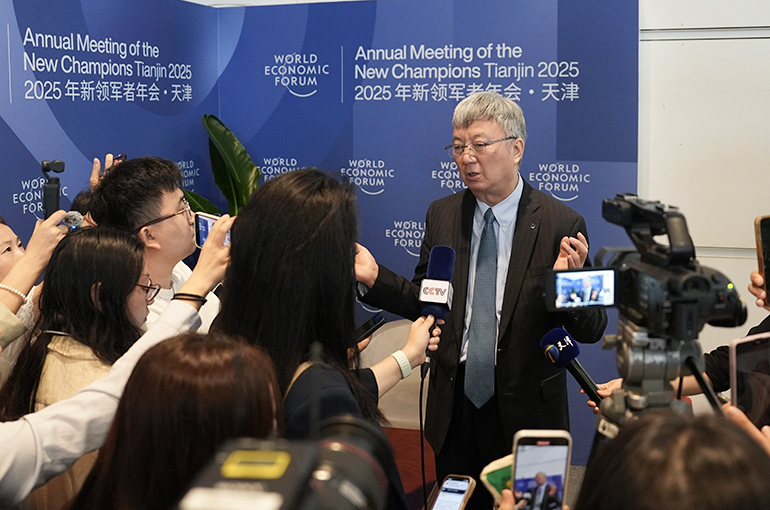 Experts Weigh In on AI’s Impact on Jobs at Summer Davos
Experts Weigh In on AI’s Impact on Jobs at Summer Davos(Yicai) June 26 -- The effect of artificial intelligence on employment will vary widely depending on the type of work, skill level and other key factors, according to experts attending the ongoing World Economic Forum’s Annual Meeting of the New Champions in Tianjin, where the future of AI in the workplace is a hot topic of discussion.
As powerful AI models are rapidly adopted in industries, traditional white-collar positions such as accountants, financial professionals, lawyers and doctors are under threat, several experts said at the conference, which is also known as the Summer Davos. However, this disruption might only be temporary.
AI should be seen as an empowering tool that boosts productivity, said Carl-Benedikt Frey, professor of AI and work at the Oxford Internet Institute. It connects the world's best scientists and entrepreneurs and gives more people access to vast amounts of knowledge at their fingertips.
AI’s impact on jobs will differ depending on the region and industry, said Frey, who is also director of the Future of Work Programme and Oxford Martin Citi Fellow at the Oxford Martin School. For example, scholars and those working in the creative sector could actually benefit more. On the regional level, AI could help close the skills gap between service sector workers in developing and developed countries, creating a window of opportunity for developing nations to improve productivity and boost their service sectors.
AI will affect people with different skill levels in different ways, said Kian Katanforoosh, chief executive officer and founder of Workera. To take programming as an example, entry-level coders doing simple tasks could be replaced by AI, but senior developers, who handle coding at a more advanced level, are less likely to be affected.
"AI is driving a fundamental shift in employment,” said Zhu Min, a member of the senior expert advisory committee of the China Center for International Economic Exchanges and former deputy managing director of the International Monetary Fund. “Jobs involving repetitive manual labor may disappear while more people will turn towards research and development roles."
AI can only serve as a tool to help medical doctors work more efficiently and assist their diagnostic capabilities, but it cannot replace their decision-making, Gong Rujing, chairman and founder of Yidu Tech, told Yicai. In the short term, the risks of using AI in healthcare are not yet fully understood, he added.
"In the next three to five years, digital technology will generate vast amounts of data in the healthcare sector,” Gong said. “This enormous volume of data will need processing and analyzing and this could create more job opportunities."
However, many experts warned that it is necessary to carefully evaluate AI's ability to create new jobs in the short term. In the medium to long run, digital technology is expected to increase demand for employees with highly specialized skills and knowledge across a number of sectors, but this transition requires strong policy support and close cooperation from industry.
Editor: Kim Taylor